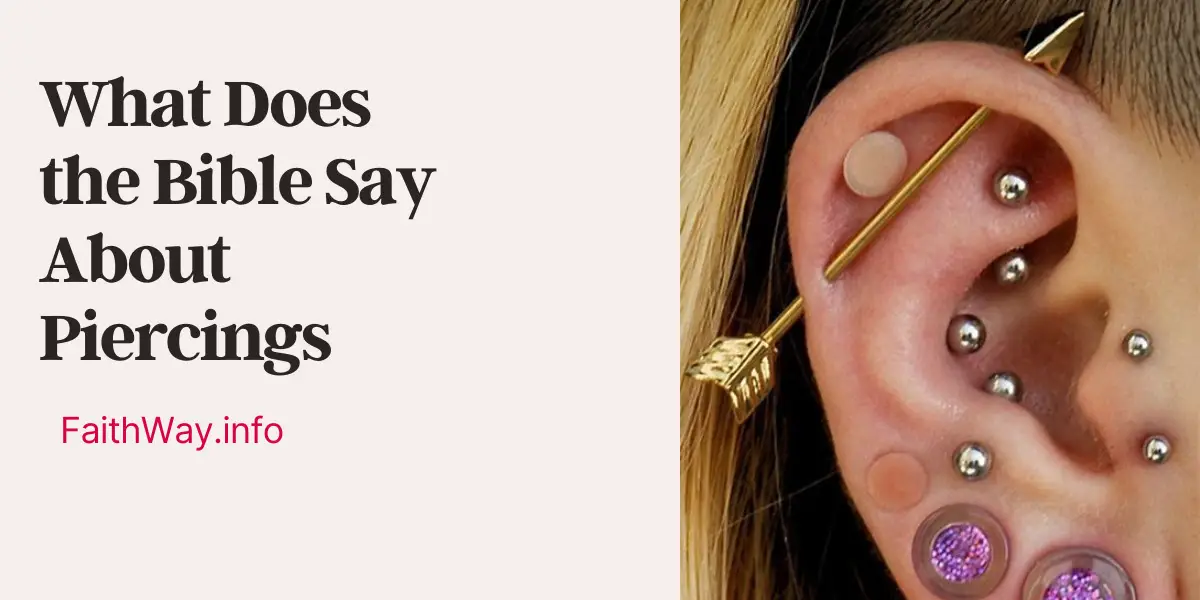Are you confused about what the Bible says about piercing? In the Bible, it’s clear that the practice of piercing the body is addressed in several places. But what exactly does the Bible say about it?
Most people know that the Bible tells us not to make any markings or marks on our bodies.
However, this ban can be interpreted as not just cutting and marking ourselves, but also puncturing the body, which is a form of piercing.
Leviticus 19:28 says: “Ye shall not make any cuttings in your flesh for the dead, nor print any marks upon you: I am the Lord.” This verse clearly expresses God’s displeasure with the practice of piercing one’s body.
Moreover, the Bible has many teachings about body modification that may aid us in understanding what God wants us to do with our bodies.
One key passage is 1 Corinthians 6:19-20, which says, “What? Know ye not that your body is the temple of the Holy Ghost which is in you, which ye have of God, and ye are not your own? For ye are bought with a price: therefore glorify God in your body, and in your spirit, which are God’s.”
This verse refers to the importance of respecting and caring for our bodies as God’s temple, and not taking part in activities that are contrary to living as the Lord has commanded.
Although piercing may not be specifically forbidden, there is a chance that it could become an idol, and this is against God.
When people are obsessed with their bodily piercings to an extreme extent, it creates a path of idolatry.
The New Testament warns us against this kind of lifestyle, as it is considered a form of worldliness and a snare of the devil. It can take away from our worship of God and replace it with glorifying our selves through our piercings.
In conclusion, while piercings are not explicitly forbidden in the Bible, it is important to carefully consider not only our intentions but also the potential risks and consequences of piercing our bodies.
We should remember that our bodies are a gift from God and should be treated with respect.
Even so, there are certain occasions where it is okay to pierce our bodies, such as for medical reasons or as a sign of commitment to God.
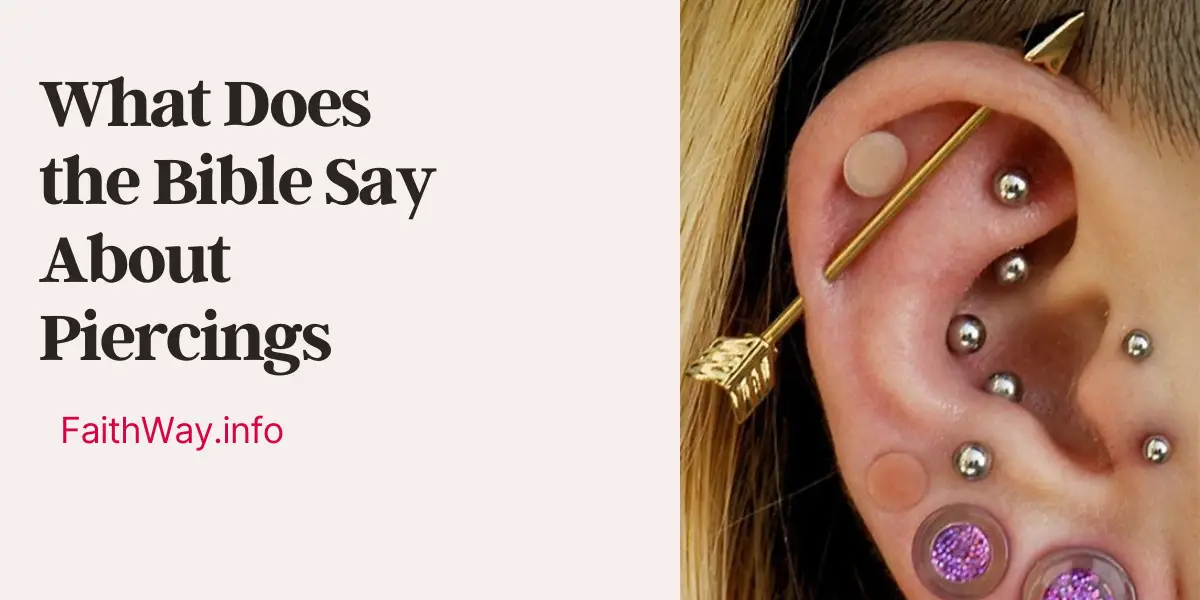
Making Good Decisions about Body Modification
As Christians, it is important that we make right decisions about body modification. We should consider what our motives are, if our piercings will be a cause of stumble for others, and if we are willing to deal with the consequences. Additionally, if we ever decide to get pierced, it should be done in a clean and proper manner.
Above all, it is important to respect the Bible’s teachings and listen to the Holy Spirit’s prompting.
We should be careful to not “conform to this world” in our body modifications, but instead be transformed in our minds (Romans 12:2). We should abide by the verses in 1 Corinthians 6 and understand that our bodies are God’s temple.
We should be prayerful and wise as we make decisions about body modification, and ask ourselves honest questions about our intentions.
If we trust in the Lord with all of our hearts and put our faith and hope in Him, He will guide us through the process and show us what is best for us.
It is important that we understand that the Bible does not specifically forbid body modification, but it does encourage us to be wise and right-minded when we make decisions about it.
If we consider what the true motives behind our piercing are and put our faith in the Holy Spirit to lead us, we can trust that God will guide us in making the right decisions.
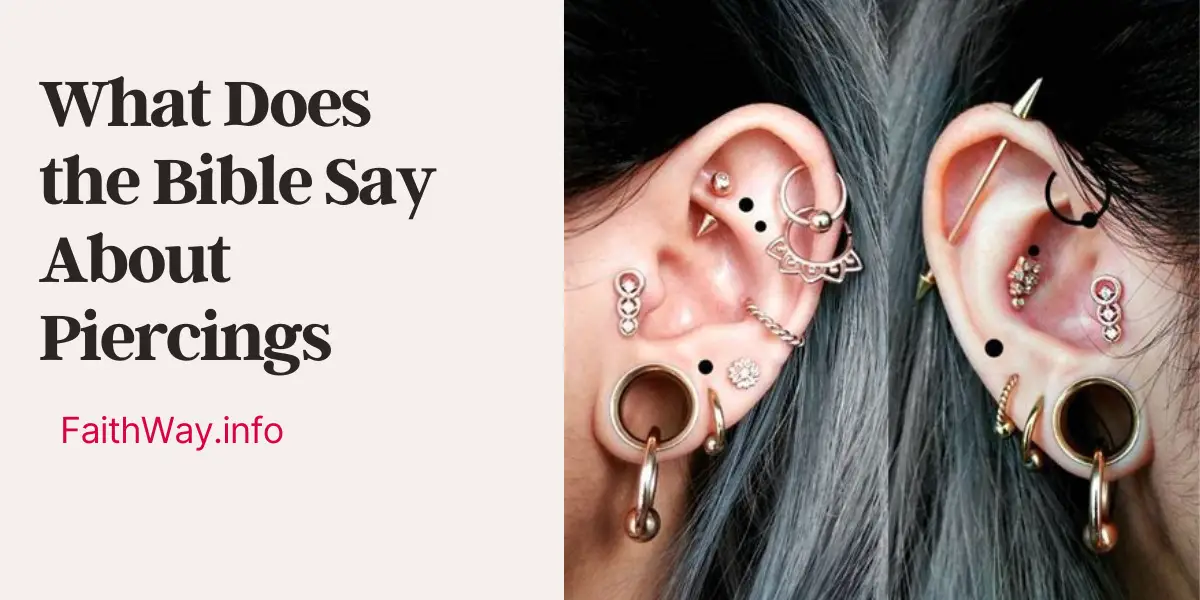
Effects of Piercing
In addition to considering what the Bible says about piercing, it is also important to take into consideration the potential effects of the process before going through with it.
Most people know that piercing carries a certain amount of risk, and it is wise to think through the possible consequences beforehand.
For example, getting a piercing could carry a risk of infection. If the procedure is not done in the right way, with the right materials, and by a professional who has been trained in the proper techniques, the risk of infection is higher.
The other risk associated with a body piercing is a reaction to the jewelry that is used in the piercing.
Some people are allergic or have a reaction to certain materials used in earrings and other jewelry.
It is important to make sure you are only using materials that are compatible with your body, and to be alert for any signs of a reaction.
Also, getting a piercing can cause unexpected pain during the procedure, or afterward in the healed piercing.
There is no way to predict how your body will react, and it is sometimes impossible to determine beforehand how much pain a piercing might cause.
Overall, the potential risks of piercing should be carefully considered to decide whether or not it is an appropriate thing to do. Knowing all of this information can help us make wise decisions for ourselves and for the people around us.
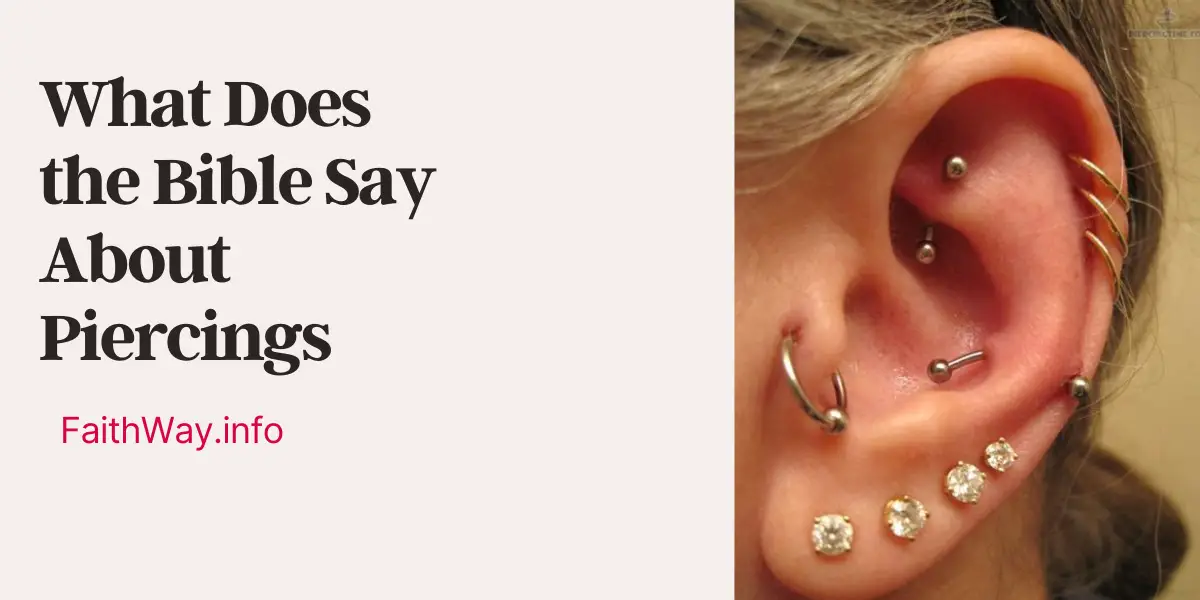
Responsibly Engaging in Body Modifications
When it comes to body modifications, it is important to make wise decisions. Seeking professional advice from a doctor, or a reputable piercing studio, can be a great way to ensure that piercing is safely and properly done, even though I personally don’t recommend that you get piercings.
It can also be beneficial to ask questions and do research before going through with the procedure.
Knowing the answers to questions about materials used, tools being used, and the potential risks involved can help one feel more in control and less uncertain about the procedure.
Finally, it is important to give thought to the potential long-term effects of body modifications.
Are there any potential consequences that will result in physical or emotional pain, or hinder one’s spiritual growth? These are important questions to consider before taking part in any body modifications.
By thinking through the potential risks and being aware of our own motives for wanting a body modification, we can make more informed decisions and more responsibly engage in body modifications.
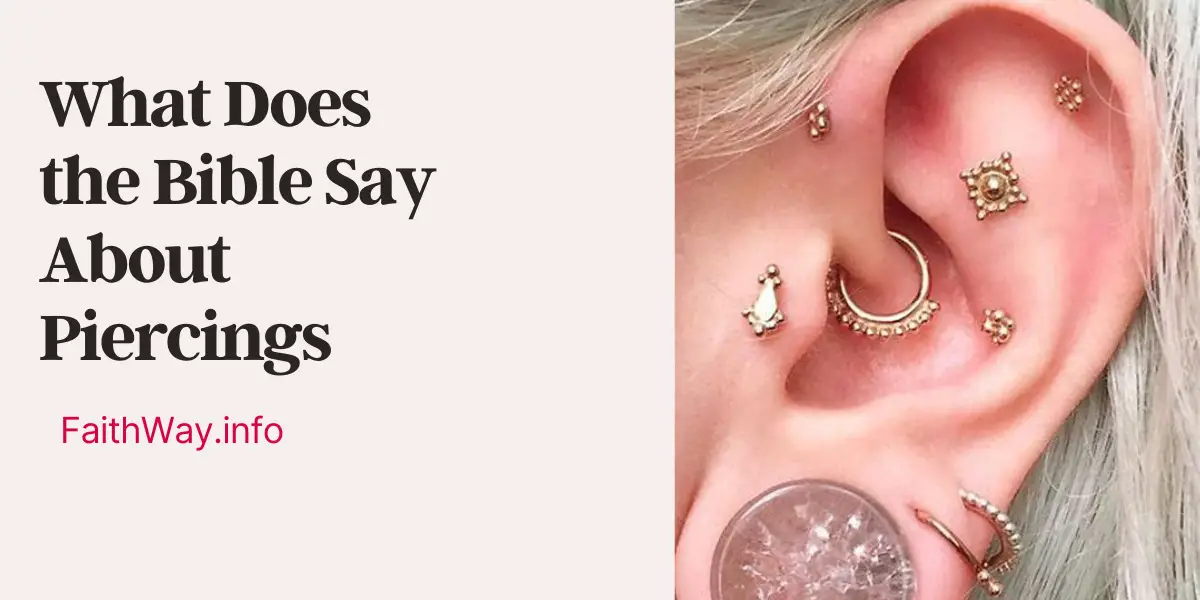
Piercing as an Act of Worship
I have no doubt that you will come across certain people who will say that there are certainly respectable biblical reasons to get a body modification, such as honoring God by getting a body modification to express one’s faith.
They will say that even David, a man after God’s own heart, is an example of a good King who expressed his faith to God by waring a nose ring. But this is false. There is no account of King David wearing a nose ring according to the Bible.
However, there is a king called “Manasseh ” who had a nose piercing with a nose ring. But don’t be deceive, this wasn’t a fashion statement or a act of worship to God, instead it was a form of brutal punishment being dish by his enemies.
“So the LORD sent the commanders of the Assyrian armies, and they took Manasseh prisoner. They put a ring through his nose, bound him in bronze chains, and led him away to Babylon“
1 Chronicles 33:11
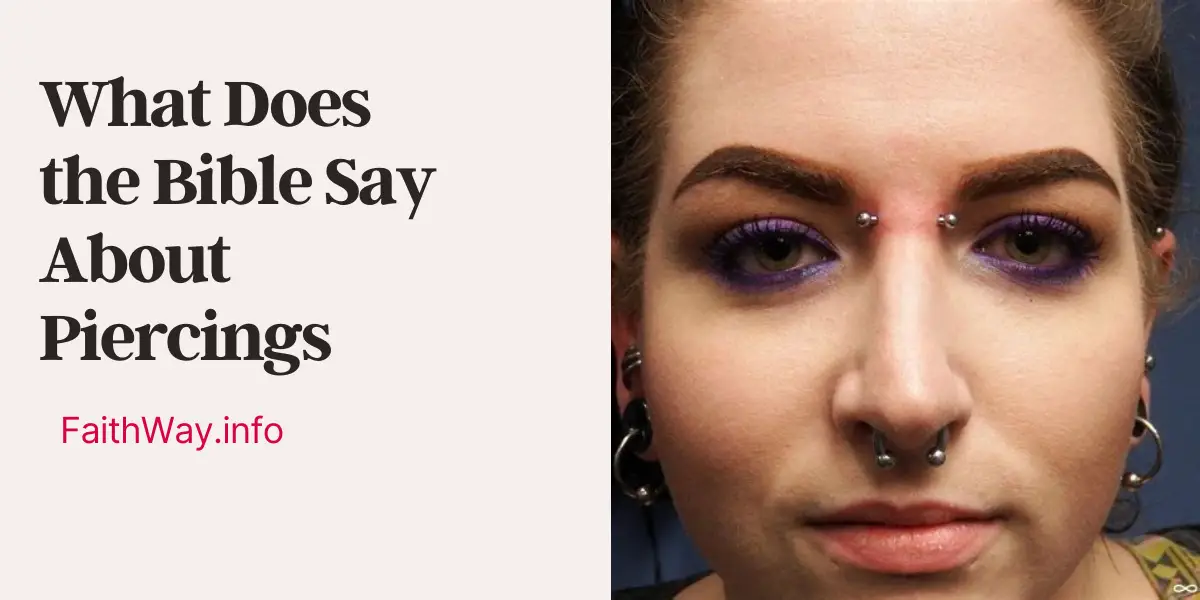
The Power of Prayer and Guidance
In the end, it is important to remember that all decisions should be made through prayer and God’s direction.
We should not base our decisions on the world’s opinion or go with our own thoughts.
The Bible tells us to always seek His counsel and His face, and trust that He will guide us through our life’s decisions (Psalm 32:8).
The Bible also tells us to rely on the Holy Spirit, Who is our helper and comforter (John 14:16). We can trust that when we ask for God’s direction, He will give us wisdom and understanding that surpasses our own knowledge.
It’s important to ask God for guidance so that He can give us clarity, direction, and discernment about our life decisions.
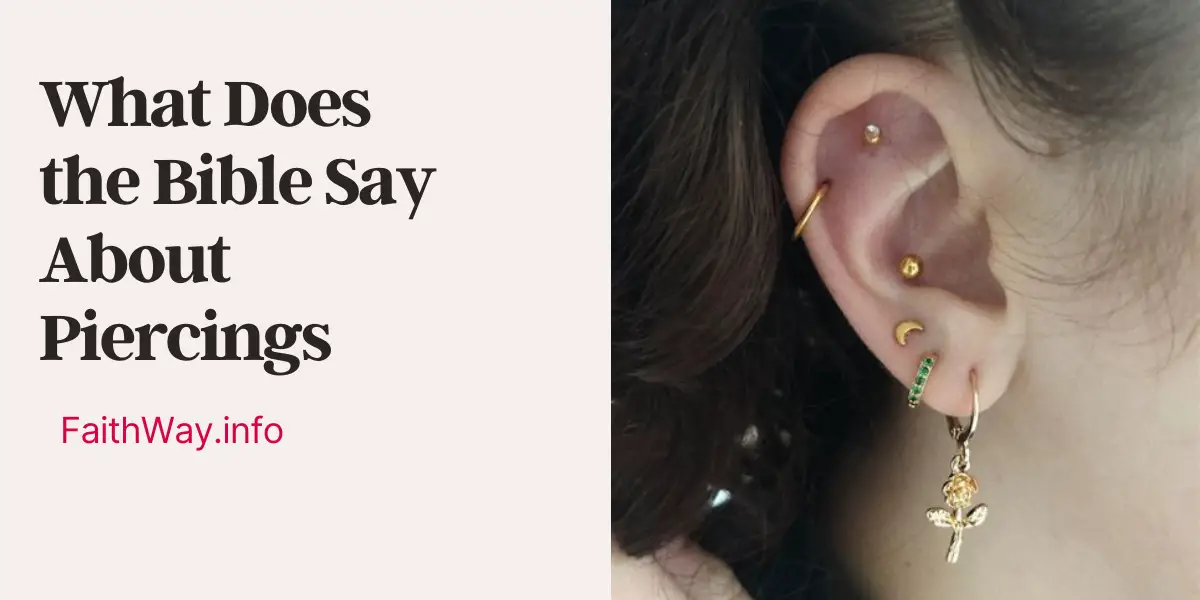
In Closing
Ultimately, it is up to us to decide whether or not body modification is right for us, but we should always remember to pray for guidance first, and trust that God will reveal the perfect path for us as we seek Him in all of our decisions.

Faithway.info, your online sanctuary for deepening your spiritual journey and mastering the teachings of the Bible. At Faithway.info, we are passionate about making the wisdom of the Bible accessible to everyone, fostering a community dedicated to growth, understanding, and support.
